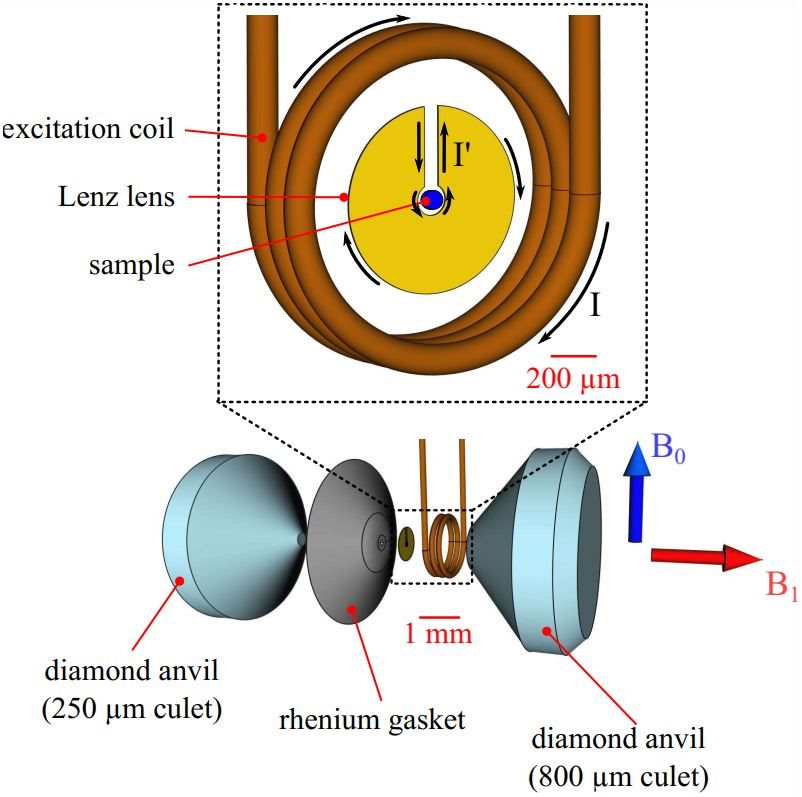
Nuclear Magnetic Resonance breaks through the barriers of high pressure
T. Meier, N. Wang, D. Mager, J.G. Korvink, S. Petitgirard, and L. Dubrovinsky
Magnetic flux tailoring through Lenz lenses for ultrasmall samples: A new pathway to high-pressure nuclear magnetic resonance,
Sci. Adv. 3, eaao5242 (2017)
http://advances.sciencemag.org/content/3/12/eaao5242
Nuclear Magnetic Resonance (NMR) is widely considered to be the among the most versatile spectroscopic methods. It is regularly used in hospitals through magnetic resonance imaging techniques and is an essential part in modern chemistry and bio-chemistry, helping our understanding of the structure of bio-macromolecules or the nature of neuro-degenerate diseases.
An application into the field of high pressure sciences was, however, widely considered unfeasible due to inherently low signal intensities and the need to accommodate radio-frequency transmit and receive units close to the samples encased in the tiny sample volumes characteristic for diamond anvil cell (DAC) experiments.
These technological issues could be solved recently by application of so-called Lenz lenses. These almost two-dimensional resonators made it possible to access the remote sample in a DAC and to extract very faint nuclear induction signals from a compressed sample of paraffin oil which was held under pressures of up to 72 GPa.
This new development opens up the possibility to investigate hydrogen-rich compounds, like high pressure ices or metal hydrides, at pressures at an order of magnitude higher compared to other high pressure NMR methods.

Schematic explosion diagram of the resonator setup and the anvil/ gasket arrangement The enlarged picture shows the RF arrangement of the excitation coil with the Lenz lens. Black arrows denote the directions of the high-frequency current.
Tel: +49-(0) 921 55 3700 / 3766, Fax: +49-(0) 921 55 3769, E-mail: bayerisches.geoinstitut(at)uni-bayreuth.de